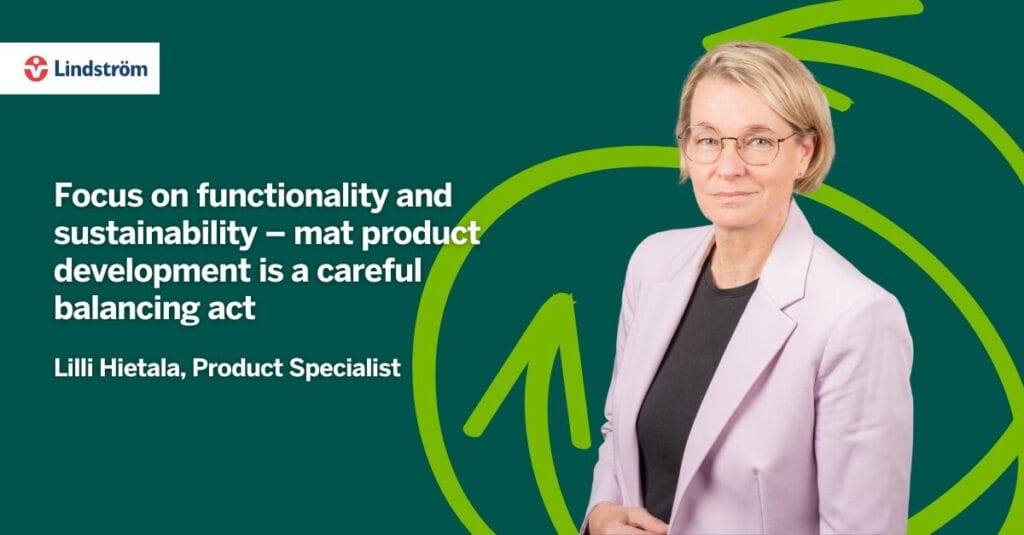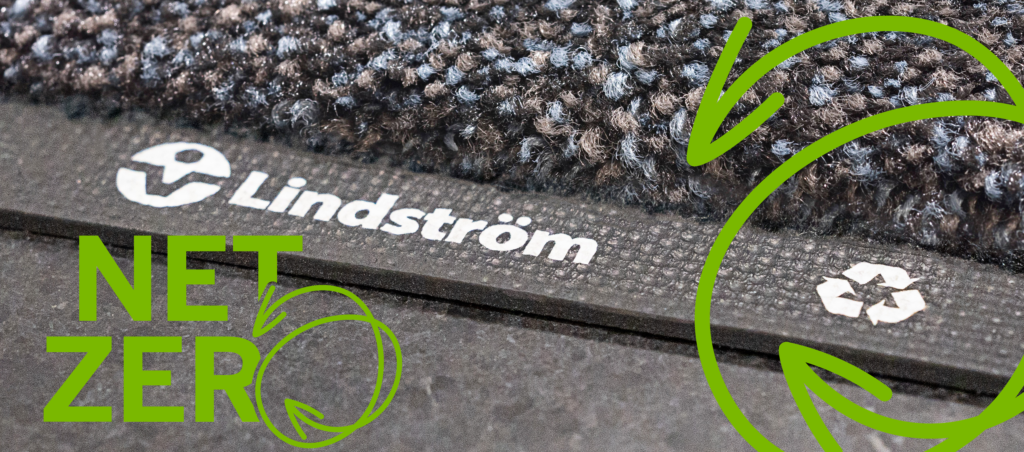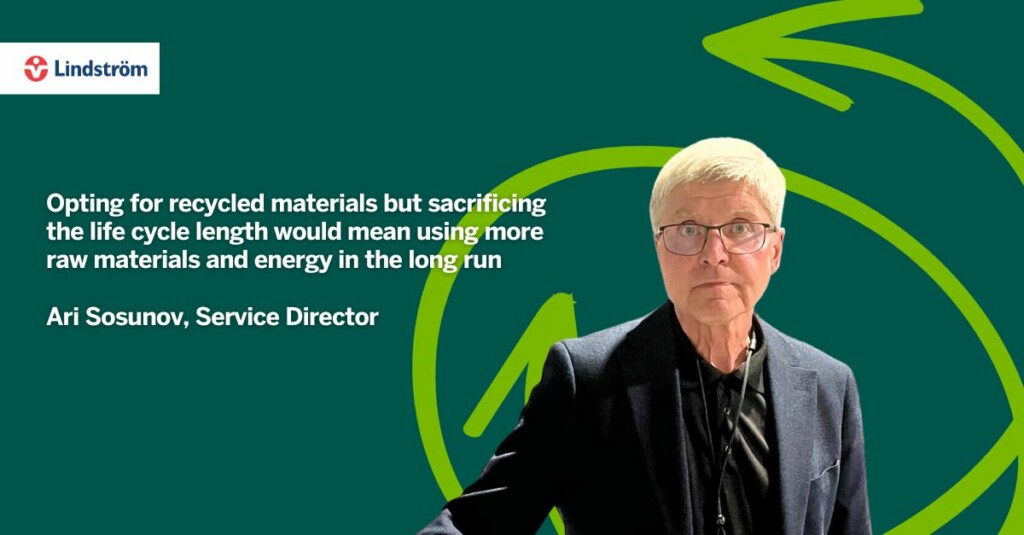
Lindström and Infinity Mat Recycling in partnership
Lindström and Infinity Mat Recycling are partnering up to recycle end-of-life mats from the Finnish market. This marks a significant milestone in our journey toward our 100% recycling target. Our collaboration is a big achievement not only for the mat industry but also in making the textile industry more circular.
“At the end of 2023, we announced that all our newly produced standard mats contain recycled nylon and phthalate-free virgin rubber. Together with the fact that we can now also recycle our end-of-life mats, this is happy news,” says Jussi Leskinen, Operative Director at Lindström.
“We are delighted to work with a company of Lindström’s standing and reputation. The partnership has so far been very good. We are hopeful that we can scale up the countries we can support with our service,” comments Richard Malpass from Infinity Mat Recycling.
Mat recycling is no piece of cake
Lindström mats are made from rubber, with nylon yarn vulcanized together on top. Separating these two materials at the end of the mat lifecycle is a challenge.
“We have been looking for mat recycling solutions for many years. We have discussed this with specialists and even with universities that study different raw materials and how they can be separated and recycled. There haven’t been good options, and it has seemed hopeless. Looking at the timeline today, it was a quick process from finding this partner company to the point where discussions became very concrete.” Kristiina Tiilikainen, Director of Sustainable Procurement shares.
“Previously Lindström mats were incinerated, which creates greenhouse gas emissions and other pollutants. Even if you can recover the energy from the process, burning something that has value is not a sustainable way of producing energy. Now, we can avoid that. Simultaneously, we can use less virgin materials when producing new mats,” Ulla Luhtasela, Director of Sustainability, explains.
What does Infinity’s process look like?
The process involves grinding the mats into small particles. Using a unique process we have developed, we can separate the fibre from the rubber, resulting in clean rubber crumb and fibre. Our focus is on improving the separation process, and to that end, we have an upgrade being installed on the plant in the coming month. Next, the separated crumb goes to a pyrosis plant, which turns it into carbon black and oil. This can then be reused in the nitrile rubber-making process. The fibre goes to various off-takers, depending on what material it is, for re-use as insulation, packing material, or to be reprocessed into fibres.
Richard Malpass from Infinity Mat Recycling
“It is a huge step forward because mats are difficult products to recycle. It is so cool that we can recycle the raw materials and reuse them in a sensible way.” Kristiina says. Kristiina, who visited the partner company premises, shares positive memories from the trip. “Visiting Infinity’s facilities, we noticed that the people who built the factory and are now running it shared our enthusiasm about the whole recycling process. They were true professionals who knew what they were talking about and what they were doing. That gave us a really great feeling.”
Forerunner in sustainable textile rental services
The partnership between Lindström and Infinity Mat Recycling is a big achievement for the mat industry in general, and even the whole textile industry. “It brings us one big step closer to a circular economy.” highlights Kaspars Grava, Mats Service Owner.
“Our goal is to recycle all Lindström end-of-life mats by the end of 2025. But I am confident that we are going to solve this a little bit faster,” Kaspars says with a smile. Lindström strives to break the ice and implement solutions that did not exist before, making big efforts toward sustainability.
The sustainability goal is to create a closed loop in which one can reuse materials from a product to produce the same type of product again. Lilli provides a practical example: “It doesn’t really make sense to use plastic bottles to make mats. Those should go back to the beverage industry. For mats, we could really use the material that comes from old mats and reuse it. That is really the dream goal.” A big part is naturally also making sure that our textiles have a long lifespan. We repair and keep them in the circle as long as possible.
Pushing to develop better solutions
The more we push and develop the recycling infrastructure, the cheaper it will become in the long run. “Maybe recycled materials will one day become even cheaper than virgin materials—this is what we hope for. When we gain volumes and improve techniques, eventually, the price will go down; you can see the same phenomenon in almost every business.” Ulla Luhtasela says. Jussi agrees, estimating that in 10 to 15 years, the solutions will be cheaper and more efficient. “In that sense, players who come late to the competition can then just enjoy. We, as the forerunners, need to do the hard work.”
“We believe that we are the first ones in the Finnish market to recycle mats at this scale” Jussi Leskinen continues. Interestingly enough, Scandinavia seems to lead in this kind of sustainability topic once again. “In Finland and the Nordic region, many customers are keen to hear about our sustainability initiatives. They challenge us and push us forward. That’s why it is great that we can now add our mats to the list of recycled products. We can offer the customer the full story, the end-to-end story where we are proud of every step” shares Kaspars.
“We consider not only what customers ask from us, but also what we proactively bring to the market. I see that it is our social responsibility as a responsible company, to develop better solutions with our partners. This way, we make the world a bit better place to live.” Jussi concludes.
Press contact:
Kaspars Grava, Mats Service Owner
Phone: +358 406158320
Email: kaspars.grava@lindstromgroup.com
Jussi Leskinen, Operative Director
Phone: +358 407276773
Email: jussi.leskinen@lindstromgroup.com




